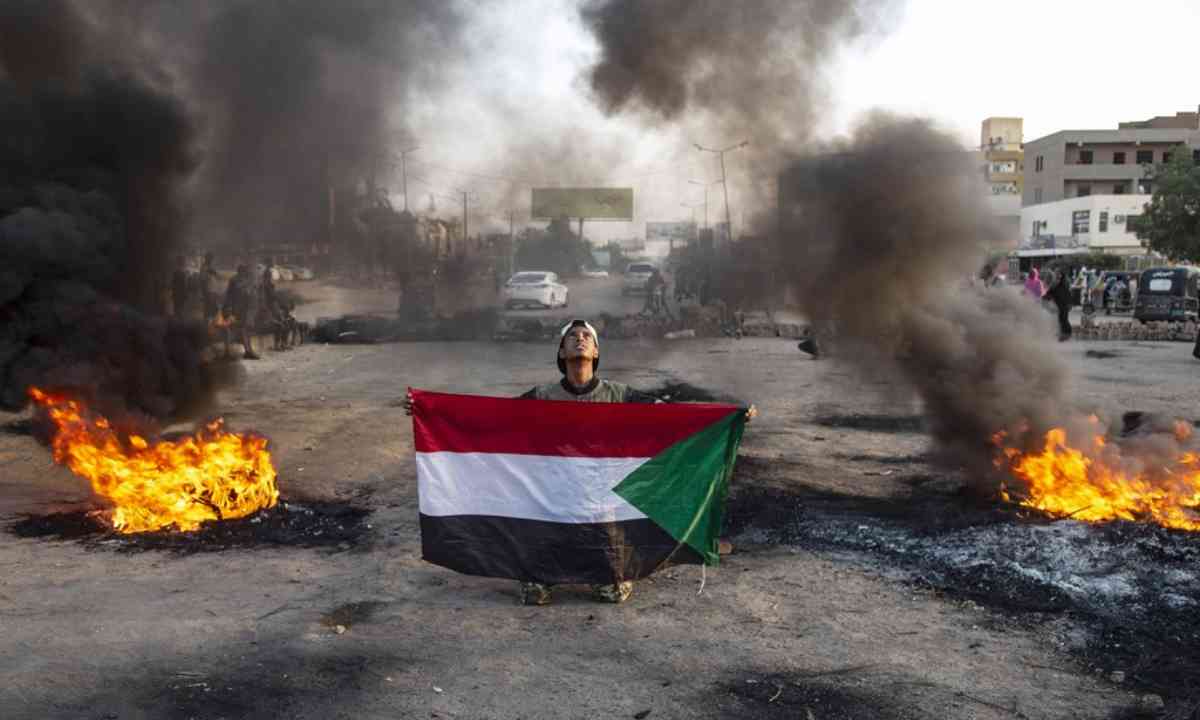Sudan - What is happening, and how is it related to a century of conflict Have a look at our in-depth video on why Sudan is on fire, and what can be done to stop it.
Sudan - What is happening, and how is it related to a century of conflict?
There has been much noise lately about the humanitarian crisis brewing in Sudan, but hardly anyone knows why there is unrest in that part of the world, or why this is not a standalone incident in a war-torn country, that has seen nothing but conflict & civil wars for almost a century.
Today, we will try and explain the Sudan crisis and take a deep dive into this socially, politically, and historically divided, distraught, and disemboweled nation.
Sudan's Current Conflict: A Historical Context
Sudan gained independence from Britain in 1956, but the country has been marked by a long history of civil war and political instability.
Sudan has a long and complicated history of conflict, shaped by ethnic and regional divisions, a legacy of colonialism, and a struggle for power and resources. The country's current conflict, which began in the early 2000s and continues to this day, is in many ways a product of this history. Its first civil war broke out in 1955, just before independence, and lasted until 1972.
One of the key factors contributing to Sudan's current conflict is a history of marginalization and discrimination against certain ethnic and regional groups.
During the 1990s, the government of Sudan also waged a brutal campaign against rebels in the western region of Darfur, resulting in a humanitarian crisis and allegations of genocide. This conflict, which began in 2003, has continued to this day, with rebel groups fighting against the government and its allied militias.
In 2011, South Sudan gained independence from Sudan after a referendum, but tensions between the two countries remained high, particularly over the issue of oil resources.
The ongoing conflict in Sudan today is complex and multifaceted, involving different groups and interests. The conflict in Darfur continues, with rebel groups fighting against the government and its allied militias. There have also been clashes in other regions of the country, such as Kassala and the Nuba Mountains. Additionally, the recent military coup in 2021 has led to protests and unrest in the capital city of Khartoum, with the international community calling for a peaceful resolution to the conflict and the restoration of civilian rule.
The conflict was primarily between the northern, Arab-dominated government and the southern, predominantly Christian and animist rebels who sought greater autonomy and representation.
A second civil war broke out in 1983, fuelled by similar grievances as the first conflict. This war lasted until 2005 and resulted in the deaths of an estimated 2 million people and the displacement of millions more.
Overall, Sudan's history of conflict has been marked by grievances over issues of representation, autonomy, and resources, as well as ethnic and regional divisions. The ongoing conflict in Sudan today is no exception, and it continues to be shaped by these underlying issues, as well as the legacy of past conflicts and the international community's response to them.
In addition to Darfur, other regions in Sudan have also seen unrest. In the eastern region of Kassala, there have been clashes between ethnic groups and the government. In the central region of Blue Nile, the government has been fighting rebel groups since 2011.
Sudan - The Current Situation
The recent upheave of conflict revolves around infighting between two rival groups: the Sudanese army and a paramilitary group known as the RSF, or Rapid Support Forces. Since a coup in the country in 2021, which ended a transitional government put in place after the fall of longtime dictator Omar al-Bashir two years earlier, Sudan has been run by the army, with coup leader General Abdel-Fattah Burhan as de facto ruler.
This has led to almost 200 people dying in Khartoum, the capital city, and a global humanitarian crisis. And given that Sudan borders the Red Sea, the Sahel region, and the Horn of Africa. It's strategic location and agricultural wealth have attracted regional power plays, complicating the chances of a successful transition.
What happens next?
We are not really sure, since this seems to be a lose-lose battle for the people of Sudan. While the global powers seem to be focused more towards exploiting a broken country for its natural resources and do very little to actually end this decades-long human crisis.
This was VYGR Longform, download the VYGR app to stay updated on the latest news & content. Subscribe to the social channels of VYGR.
© Copyright 2023. All Rights Reserved Powered by Vygr Media.























